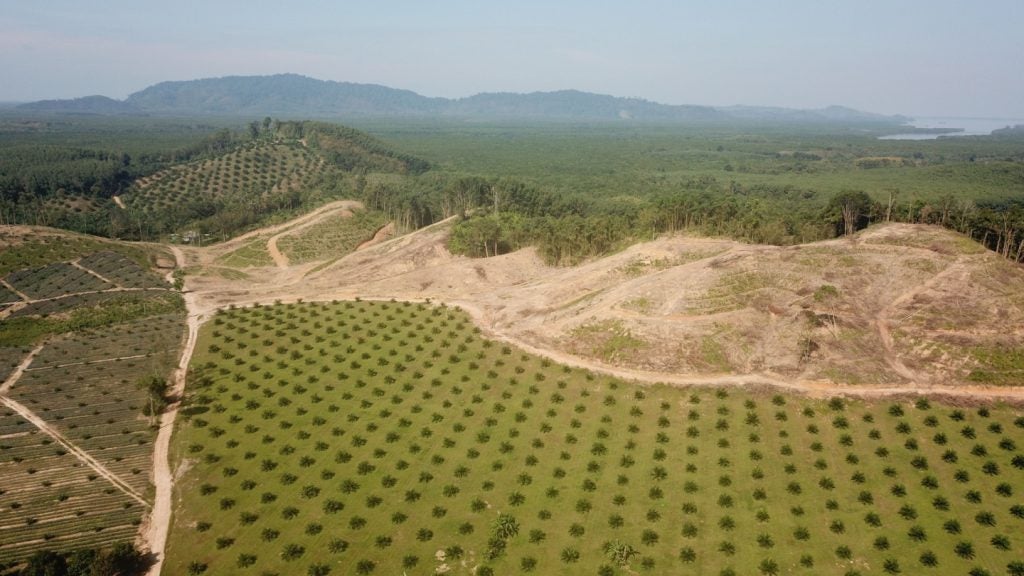Consumer goods companies need to prepare for the implementation of stricter EU rules on deforestation that could see them fined up to 4% of their annual revenue. From 29 June, companies will have 18 months to implement full traceability into their supply chains and must show that certain products placed on the EU market have not come from deforested land.
The EU Deforestation-Free Regulation applies to all businesses that sell the following commodities within the EU or export from it: cattle, cocoa, coffee, palm oil, rubber, soy and wood. The rules also cover several derived products such as chocolate, furniture, and printed paper. The full list of affected products is included in Annex I of the EU’s adopted text.
Companies will be required to trace the commodities that they are selling back to the plot of land where they were produced and provide the longitude and latitude of that land in a due diligence statement. This due diligence statement will need to confirm that the product does not come from land that was deforested after December 31, 2020. Companies will also need to disclose annually their deforestation due diligence systems and how these are conducted.
Deforestation scorecard
Companies found to have sourced products from deforested land could be fined up to 4% of their annual revenue, which is large enough to make investors worry about a company’s financial performance if they are caught breaking the rules. Some investors have even said that they are prepared to exit consumer goods companies that do not implement deforestation strategies. The law will come into force in 18 months for large businesses and 24 months for SMEs.
The Rainforest Action Network (RAN), a US-based environmental organization, has said that major consumer goods companies are at risk of breaking the EU’s rules. A deforestation scorecard produced by RAN showed that ten major consumer goods companies had taken inadequate action on deforestation.
These companies were Colgate-Palmolive, Ferrero, Kao, Mars, Mondelez, Nestlé, Nissin Foods, PepsiCo, Procter & Gamble, and Unilever. A spokesperson for RAN, Emma Rae Lierly, told Just Food all ten companies would fail when measured against the requirements of the EU’s new legislation.
The rules have also rumbled some of the EU’s trade partners. Malaysia and Indonesia, the world’s two largest palm oil producers, have criticized the rules and say that they place the costs on exporters, especially smaller producers. Larger companies purchasing from smaller farmers may find they need to take some of the burdens of the smaller companies’ costs on top of their compliance costs.
[Link src="https://www.just-food.com/features/eus-new-law-puts-industry-in-spotlight-on-deforestation/" title="Read more about this on Just Food: EU's new law puts industry in spotlight on deforestation" font-size="20px"]








